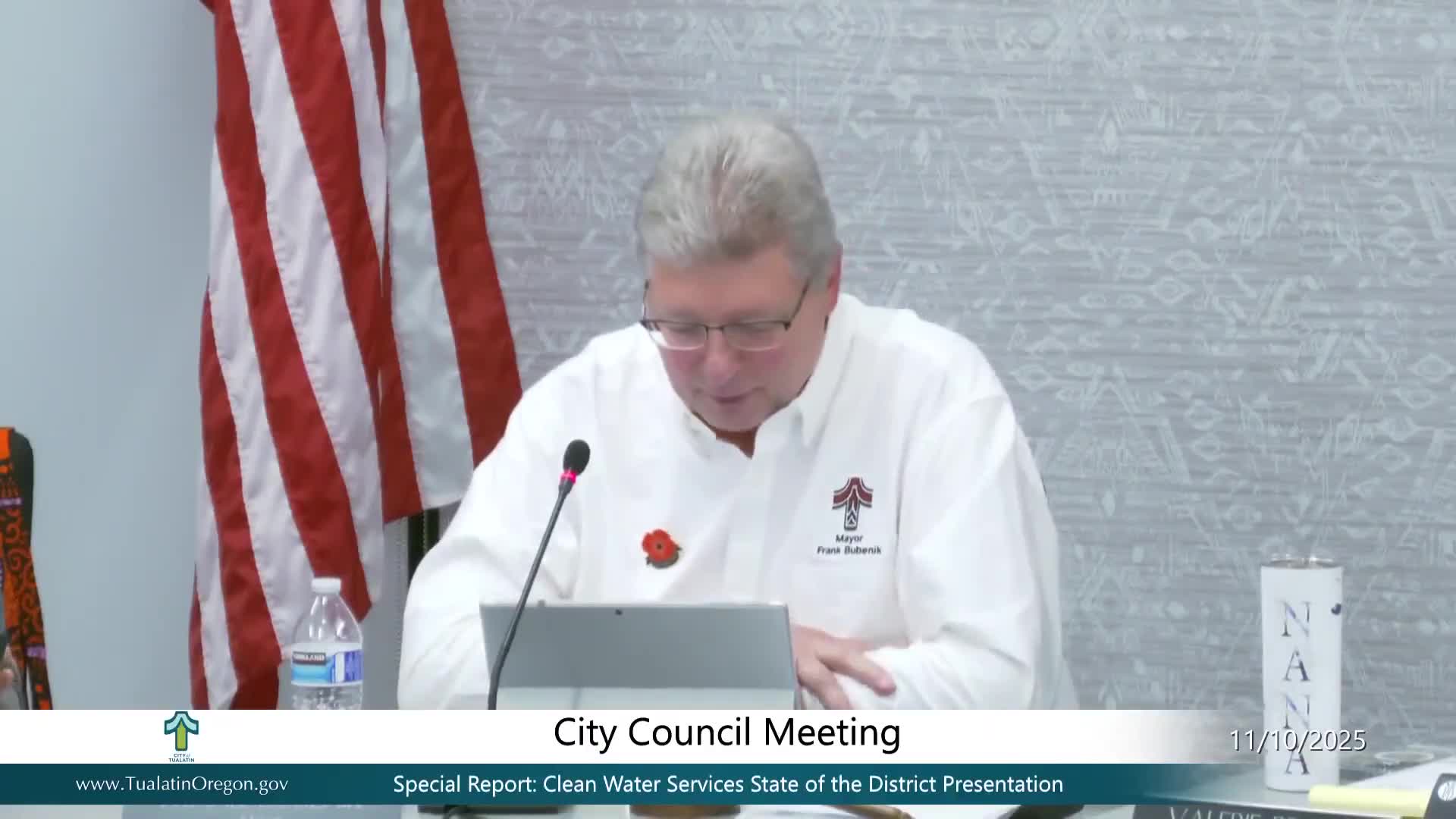Tualatin council upholds ARB approval of Lam Research expansion after contested hearing
Get AI-powered insights, summaries, and transcripts
Subscribe
Summary
After a lengthy hearing where neighbors raised traffic and noise concerns, the Tualatin City Council unanimously denied an appeal and upheld the Architectural Review Board's Sept. 10 approval of Lam Research's AR 24-0002 campus expansion, directing staff to prepare findings and a resolution.
The Tualatin City Council denied an appeal and affirmed the Architectural Review Board's Sept. 10 approval of Lam Research's proposed campus expansion (AR 24-0002) in a unanimous vote Nov. 10.
The council's decision followed a quasi-judicial hearing in which city staff, Lam representatives and neighbors presented technical studies and testimony. Keith Leonard, the city's associate planner, told the council the staff record addresses notice, traffic, noise, and procedural objections and concluded the ARB's approval met applicable Tualatin development code criteria. "If the council identifies approval criteria that are not satisfied," Leonard said, "it must continue proceedings to allow the applicant to modify the proposal or recommend conditions of approval." (Staff presentation)
Lam Research representatives described the project as a multi-building expansion funded in part by the Oregon CHIPS Act. Jennifer Otterness, Lam's facilities director, said the project would bring hundreds of jobs and local economic investment and that the company had shifted proposed buildings and closed proposed direct access to Tualatin Road after community feedback. "We are eager to get started," Otterness said.
Lam's counsel and consultants provided noise modeling and a traffic impact analysis they said demonstrate compliance with relevant Tualatin Development Code standards and with reviews by the city's consultants and ODOT. Traffic expert Brent Aaron said the northernmost existing access on SW 108th Avenue would likely serve roughly 6% of campus trips at build-out and about 25 peak-hour turning movements toward Tualatin Road. He said updated counts after nearby roadwork showed reduced volumes on Tualatin Road.
Appellant Brett Hamilton, a nearby resident, and his attorney Andrew Mulkey disputed those conclusions. Hamilton focused on safety and cut-through traffic, arguing Lam's estimated 2,036 added daily trips could translate to about 203 daily trips affecting the 108th/Tualatin Road area and increase crash risk. Mulkey urged the council to treat certain noise provisions as mandatory approval standards and to require additional rooftop-level noise evaluation and mitigation before final approval.
Neighbors and community members testified on both sides. Business and regional economic organizations, including the Tualatin Area Chamber and Greater Portland Inc., urged approval, citing jobs and investment. Multiple residents asked the council to restrict employee use of the northern driveway and to require more specific noise mitigation measures.
In rebuttal Lam's team said the record contains extensive noise assessments and that code distinguishes performance (operational) standards from mandatory approval criteria; counsel argued the city could impose conditions but that the record supports findings of feasibility and compliance.
After council questions and a short recess, Council President Pratt moved to deny the appeal and affirm the ARB approval, directing staff to prepare an order and resolution that incorporates findings, the ARB decision, staff's supplemental report and Lam's alternative findings demonstrating compliance with TDC sections cited in the record. The motion passed unanimously.
What happens next: staff will prepare the council's written order/resolution for the Nov. 24 meeting. If the council had identified unmet approval criteria, the proceedings would have been continued to allow Lam to revise the proposal; Lam retains any right to appeal the council's final decision to the Land Use Board of Appeals.
